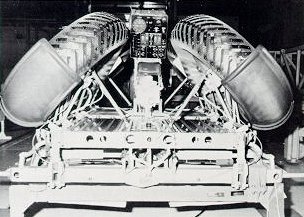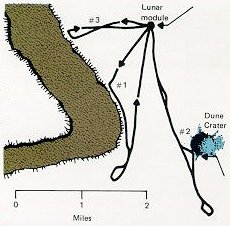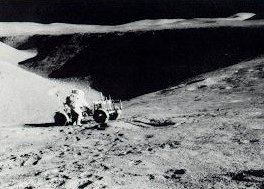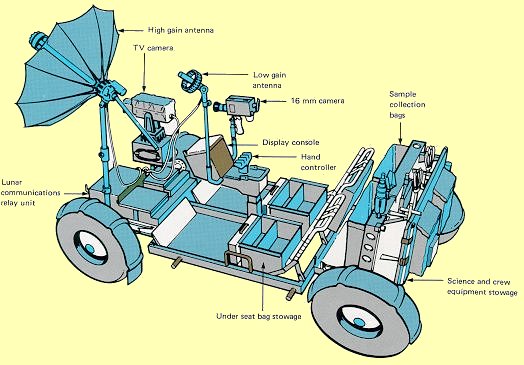Deploying the Lunar Rover
Carried to the Moon in a nose-down, floorpan-out position,
the Rover could be deployed by an Astronaut paying
out two nylon tapes. In the first stage the car swings
out from its storage bay. Then the rear part of the chassis
unfolds and locks, and the rear wheels unfold. In the third
stage the front chassis and wheels snap out.
Finally, the astronaut lowers it to the surface, and
unfolds the seats and footrests. Torsion-bar springs and latches
mode assembly semiautomatic. Power for the Rover came
from two 36-volt silver-zinc batteries driving an
independent 1/4-hp motor in each wheel. A navigation
system kept track of the bearing and range to the LM.
|























